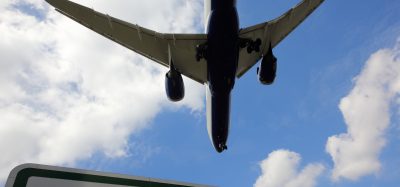From words to results on global aviation security
- Like
- Digg
- Del
- Tumblr
- VKontakte
- Buffer
- Love This
- Odnoklassniki
- Meneame
- Blogger
- Amazon
- Yahoo Mail
- Gmail
- AOL
- Newsvine
- HackerNews
- Evernote
- MySpace
- Mail.ru
- Viadeo
- Line
- Comments
- Yummly
- SMS
- Viber
- Telegram
- Subscribe
- Skype
- Facebook Messenger
- Kakao
- LiveJournal
- Yammer
- Edgar
- Fintel
- Mix
- Instapaper
- Copy Link
Posted: 10 June 2011 | Jim Marriott, Chief of Aviation Security at ICAO | No comments yet
The Declaration on Aviation Security adopted unanimously by the 37th Session of the ICAO Assembly last year set the stage for continuing improvements in how threats to the security of aircraft and facilities worldwide will be dealt with in the future.
The catalyst was the attempted bombing of a commercial airliner on 25 December 2009. Shortly after that incident, ICAO convened a series of Ministerial-level conferences on aviation security in Mexico City, Tokyo, Abuja and Abu Dhabi.
In all of the meetings, there was a strong commitment by states to protect civil aviation from all kinds of terrorist threats, as well as an expression of collective responsibility for taking action.
The Declaration on Aviation Security adopted unanimously by the 37th Session of the ICAO Assembly last year set the stage for continuing improvements in how threats to the security of aircraft and facilities worldwide will be dealt with in the future.
The catalyst was the attempted bombing of a commercial airliner on 25 December 2009. Shortly after that incident, ICAO convened a series of Ministerial-level conferences on aviation security in Mexico City, Tokyo, Abuja and Abu Dhabi.
In all of the meetings, there was a strong commitment by states to protect civil aviation from all kinds of terrorist threats, as well as an expression of collective responsibility for taking action.
The Declaration draws together these commitments into a single approach to deal with current as well as new and emerging threats to the global air transport system.
A declaration based on action
The Declaration urges Member States of ICAO to take the following actions for enhancing international co-operation to counter threats to civil aviation:
- Strengthen and promote the effective application of ICAO Standards and Recommended Practices, with particular focus on Annex 17 – Security, and develop strategies to address current and emerging threats.
- Strengthen security screening procedures, enhance human factors and utilise modern technologies to detect prohibited articles and support research and development of technology for the detection of explosives, weapons and prohibited articles in order to prevent acts of unlawful interference.
- Develop enhanced security measures to protect airport facilities and improve in-flight security, with appropriate enhance – ments in technology and training.
- Develop and implement strengthened and harmonised measures and best practices for air cargo security, taking into account the need to protect the entire air cargo supply chain.
- Promote enhanced travel document security and the validation thereof using the ICAO Public Key Directory (PKD) in conjunction with biometric information, and the commitment to report on a regular basis, lost and stolen passports to the INTERPOL Lost and Stolen Travel Documents Database to prevent the use of such travel documents for acts of unlawful interference against civil aviation.
- Improve member states’ ability to correct deficiencies identified under the Universal Security Audit Programme (USAP) by ensuring the appropriate availability of audit results among member states, which would enable better targeting of capacitybuilding and technical assistance efforts.
- Provide technical assistance to states in need, including funding, capacity building and technology transfer to effectively address security threats to civil aviation, in co-operation with other states, international organisations and industry partners.
- Promote the increased use of co-operation mechanisms among member states and with the civil aviation industry, for information exchange on security measures in order to avoid redundancy, where appropriate, and for early detection and dissemination of information on security threats to civil aviation, including through the collection and transmission of advance passenger information (API) and passenger name record (PNR) data, as an aid to security, whilst ensuring the protection of passengers’ privacy and civil liberties.
- Share best practices and information in a range of key areas, such as: screening and inspection techniques, including assessments of advanced screening technology for the detection of weapons and explosives; document security and fraud detection; behaviour detection and threat-based risk analysis.
Tighter air cargo security
Just five weeks after the adoption of the Declaration, the Council of ICAO adopted more stringent air cargo security standards. The new measures emphasise more extensive screening of cargo, mail and other goods prior to placing them on board aircraft and better protection from unauthorised interference from the point where security controls are applied until departure of the aircraft.
The updated security requirements are contained in the 12th revision of Annex 17 – Security to the Convention on International Civil Aviation, complementing other aviation security initiatives.
Two international air law instruments for the suppression of unlawful acts relating to civil aviation were adopted by a diplomatic conference, held in September 2010 under the auspices of ICAO. The two treaties further criminalise the act of using civil aircraft as a weapon, and of using dangerous materials to attack aircraft or other targets on the ground.
Regional roadmaps for implementing the declaration
Security was back on the agenda early in this year with the holding in mid-February, in New Delhi, of the first ICAO regional conference to develop regional roadmaps for implementing the provisions of the Declaration on Aviation Security.
Fourteen Member States agreed on a multifaceted plan of action that can serve as a model for other regional aviation security conferences. Following are the elements of the roadmap as captured in a separate declaration signed in New Delhi:
Declaration Commitment 1
Strengthen and promote the effective application of ICAO Standards and Recommended Practices, with particular focus on Annex 17 – Security, and develop strategies to address current and emerging threats;
Actions:
- Assure continuous, uniform and consistent compliance with the Standards and Recommended Practices of Annex 17 – Security and the security-related Standards of Annex 9 – Facilitation.
- In collaboration with appropriate security and intelligence authorities, continuously assess the level of threat to civil aviation security and adjust security measures to counter known and emerging threats.
- Promote an aviation security culture that seeks continuous improvement of effective – ness and efficiency in the design and implementation of security measures and related organisational arrangements.
- Take into account any measures that may be recommended by ICAO from time to time to address changes in the threat.
- Establish a process to achieve a balance between aviation security and facilitation objectives, provided that security is not compromised.
- Work with the ICAO Regional Office to establish a regional aviation security infor – mation exchange mechanism.
Declaration Commitment 2
Strengthen security screening procedures, enhance human factors and utilise modern technologies to detect prohibited articles and support research and development of technology for the detection of explosives, weapons and prohibited articles in order to prevent acts of unlawful interference;
Actions:
- Ensure that aviation security professionals are appropriately trained, qualified and equipped to competently carry out their duties and responsibilities.
- Explore the establishment of co-operative arrangements with partner agencies and/or States in offering training facilities, and to research and develop new detection technologies and methodologies.
- Develop and implement plans for the lifecycle replacement of detection equipment with modern technologies.
- Develop and implement, as appropriate, a quality control process to ensure rectification of any deficiencies.
Declaration Commitment 3
Develop enhanced security measures to protect airport facilities and improve in-flight security, with appropriate enhancements in technology and training;
Actions:
- Conduct risk and vulnerability assessments of airport facilities to identify and assess gaps and inadequacy in performance in access control and other measures, and take all appropriate remedial measures, including the use of modern technologies to enhance the protection of airport facilities.
- Establish and implement training programmes to ensure the competency of flight crew in security matters.
- Establish means to enhance the security of landside areas of airports.
- Engage the views of stakeholders when developing new security measures.
Declaration Commitment 4
Develop and implement strengthened and harmonised measures and best practices for air cargo security, taking into account the need to protect the entire air cargo supply chain;
Actions:
- Develop and implement supply chain security programmes in accordance with Amendment 12 to Annex 17 – Security.
- Work with Customs/border control authorities and to use Customs measures, such as the World Customs Organization SAFE Framework, to strengthen air cargo security.
- Promote the use of the regulated agent system to ensure that cargo shipments transported on board aircraft are accounted for and subject to adequate security controls.
Declaration Commitment 5
Promote enhanced travel document security and the validation thereof using the ICAO Public Key Directory (PKD) in conjunction with biometric information, and the commitment to report on a regular basis, lost and stolen passports to the INTERPOL Lost and Stolen Travel Documents Database to prevent the use of such travel documents for acts of unlawful interference against civil aviation;
Actions:
- Work with passport and border control authorities to assure the implementation of secure and unique-identification travel documents, including ePassports, and participation in the ICAO-led PKD Directory.
- Ensure the establishment of arrangements at the state level to collect and report to the information on lost and stolen travel documents and this information to the INTERPOL Lost and Stolen Travel Documents Database.
- Identify to ICAO, a single point of contact for communications with states on secure travel documents.
Declaration Commitment 6
Improve member states’ ability to correct deficiencies identified under the Universal Security Audit Programme (USAP) by ensuring the appropriate availability of audit results among member states, which would enable better targeting of capacity building and technical assistance efforts;
Actions:
- Consider arrangements under which the results of USAP audits may be shared with other states.
- Encourage states to share their USAP audit results with other states, consistent with their national laws, in order to promote mutual assurance and support for the correction of deficiencies.
Declaration Commitment 7
Provide technical assistance to states in need, including funding, capacity building and technology transfer to effectively address security threats to civil aviation, in co-operation with other states, international organisations and industry partners;
Actions:
- Establish appropriate mechanisms to provide in-kind and/or financial assistance to States in need, either directly or through ICAO programmes.
- Co-ordinate with ICAO on aviation security assistance projects through the Implementation Support and Development Assistance List – AVSEC (ISDAL).
- Recommend experts (e.g., legal advisers, auditors, trainers, project managers, technology specialists, etc.) who could be assigned by ICAO, under appropriate arrangements, to assistance projects in States.
- Using established regional bodies or on a bilateral basis, consider means by which partnerships could foster benefits (e.g., bulk purchases of security equipment).
- Promote the sharing and understanding of reliable information on the performance of aviation security equipment, while observing appropriate safeguards to protect sensitive information.
Declaration Commitment 8
Promote the increased use of co-operation mechanisms among member states and with the civil aviation industry, for information exchange on security measures in order to avoid redundancy, where appropriate, and for early detection and dissemination of information on security threats to civil aviation, including through the collection and transmission of advance passenger information (API) and passenger name record (PNR) data, as an aid to security, whilst ensuring the protection of passengers’ privacy and civil liberties;
Actions:
- Ensure participation in the ICAO Aviation Security Point of Contact (PoC) Network.
- Establish appropriate bi-lateral and regional mechanisms to promote the urgent exchange of time-sensitive aviation security information between states.
- Establish appropriate administrative arrangements for the exchange of security information with the aviation industry, while observing appropriate safeguards to protect sensitive information.
- Promote the use of API and PNR data as an aid to security through, for example, cooperation programmes between authorities responsible for aviation security and authorities responsible for API-PNR.
- Encourage liaison between authorities responsible for API-PNR programmes and appropriate privacy and civil liberty advocates.
- Ensure that API and PNR data requirements conform to international standards adopted by relevant United Nations Agencies.
Declaration Commitment 9
Share best practices and information in a range of key areas, such as: screening and inspection techniques, including assessments of advanced screening technology for the detection of weapons and explosives; document security and fraud detection; behaviour detection and threat-based risk analysis; screening of airport employees; the privacy and dignity of persons; and aircraft security.
Actions:
- Recognise, document, promote and continually review best practice techniques and methods in aviation security.
- Actively seek out best practice information that can support improvements to the effectiveness and efficiency of aviation security measures. This information may address such issues as privacy concerns surrounding the introduction of advanced screening technology and the implementation of behaviour detection programmes.
- Review legal and administrative practices to identify and act on opportunities to realise continuous improvement.
- Adopt the ICAO Prohibited Items List, to promote harmonisation of passenger and carry-on baggage screening methods.
- Use the proposed regional aviation security information exchange mechanism to collect and disseminate best practices and information in key areas to assist in the uniform application of security measures.
Enhancing co-operation with customs body
The most recent initiative to enhance aviation security came this year on 15 March 2011 with the signing of an agreement between ICAO and the World Customs Organisation to firm up co-operation on global air cargo security.
Closer collaboration between the WCO and ICAO is expected to significantly minimise the operational and financial impact of security measures by reducing or eliminating duplication in systems and processes, while enhancing synergies. The end result will be a more effective response to current as well as new and emerging threats to the security of the global trade supply chain.
A strategy focused in assistance
Throughout this period, ICAO began implementing its new Comprehensive Aviation Security Strategy, or ICASS, which allows the organisation to allocate resources more efficiently to critical objectives, such as the requirement to address new and emerging threats.
The strategy involves a continuation of security audits of member states, while focusing on addressing security shortcomings through assistance. This will require greater reliance on capacity-building initiatives that address aviation security concerns on a permanent basis.
What was clearly evident at the 37th Session of the ICAO Assembly, the regional aviation conferences leading up to it, and the first in a series of meetings to develop regional roadmaps for implementing the provisions of the Declaration on Aviation Security is a clear determination to act, to produce concrete results.
About the Author
Jim Marriott is Chief, Aviation Security Branch, International Civil Aviation Organization (ICAO), based in Montreal. In this capacity, he leads ICAO’s aviation security and facilitation policy and standards development, the Universal Security Audit Programme, international capacity building, the Machine Readable Travel Documents Programme and the Public Key Directory Programme.
During 25 years with Transport Canada, Jim occupied a variety of positions with increasing responsibility and complexity in the transportation security field. He played a major role in developing Canada’s aviation, marine and surface transportation security programs since the immediate aftermath of the 1985 Air India bombing until his departure from Transport Canada in 2010.

















